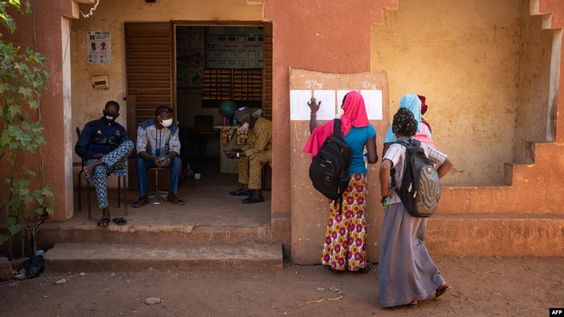Africa
Judge With Al-Qaida Links Sets Reopening Requirements for Mali Schools

According to a letter confirmed by AFP on Thursday, a powerful Malian judge with ties to al-Qaida stated that some schools in the nation cannot reopen unless boys and girls are kept segregated and don Islamic clothing.
The letter, which is sent to the governor of Timbuktu, also requests that Arabic and the study of the Koran be made available in schools.
1,766 schools in Mali have been closed, according to a report from UNICEF in October.
Jihadi organizations claim that by allowing boys and girls to mix, using French, and allowing clothing that is thought to violate their laws, the Malian educational system violates the rules they support.
In a letter dated October 26 and confirmed to AFP by a source within the governorate, the judge, Houka Houka Ag Alhousseini, outlined the three requirements for the reopening of schools in regions under Islamist control.
On the UN sanctions list is Ag Alhousseini, a former Islamic judge who presided over Timbuktu’s militant takeover in 2012.
Though he is a teacher by profession, he also holds the position of cadi, or Islamic court judge, which confers moral and religious authority.
When it is impossible to divide the class, he said in his letter that “the rows of girls and boys be divided by a barrier.”
He added that the instructor and students should share the same sex.
On their approach to school, students should dress “decently as mandated by the Muslim religion,” he stressed.
The U.N. said that the Islamist rebels are forcing the local populace in Timbuktu to adhere to their “rigorous interpretation of the tenets of Islam as well as the forced payment of zakat,” the Islamic tax, in a report on human rights abuses in Mali that AFP obtained on Thursday.
According to the report, fighters with the al-Qaida-affiliated Jama’at Nasr al-Islam wal Muslimin (JNIM), commanded by Iyad Ag Ghali, beat seven women in Duekira, in the Timbuktu area, in early July who were not covered by black veils.
VOA
